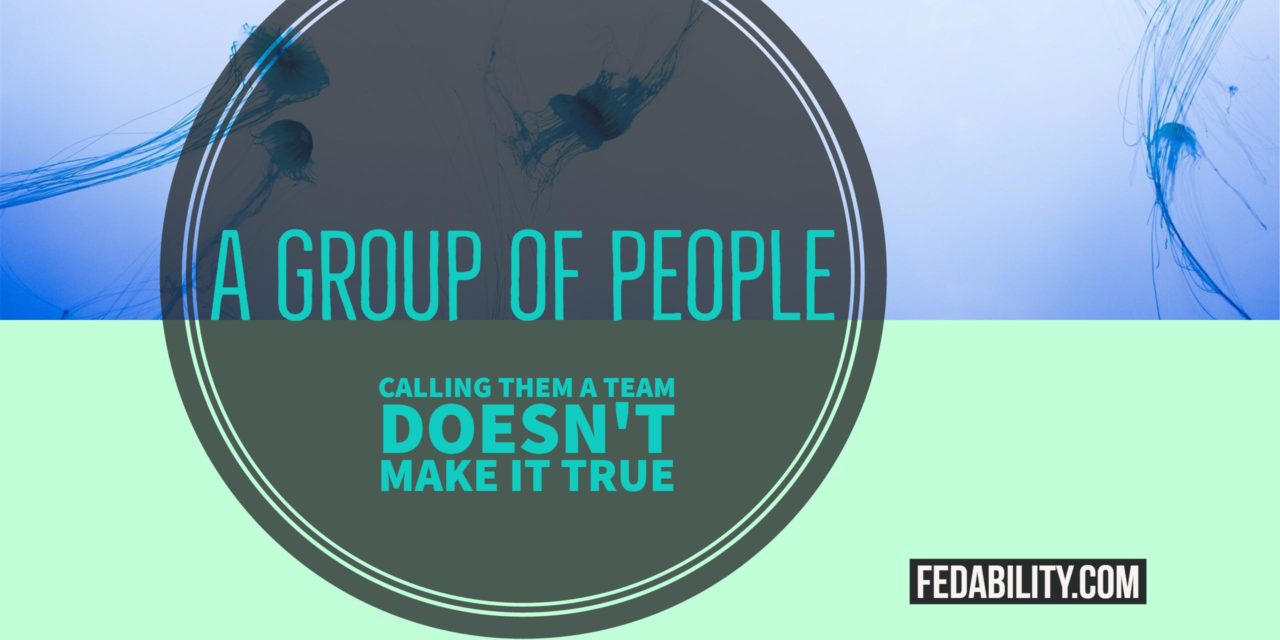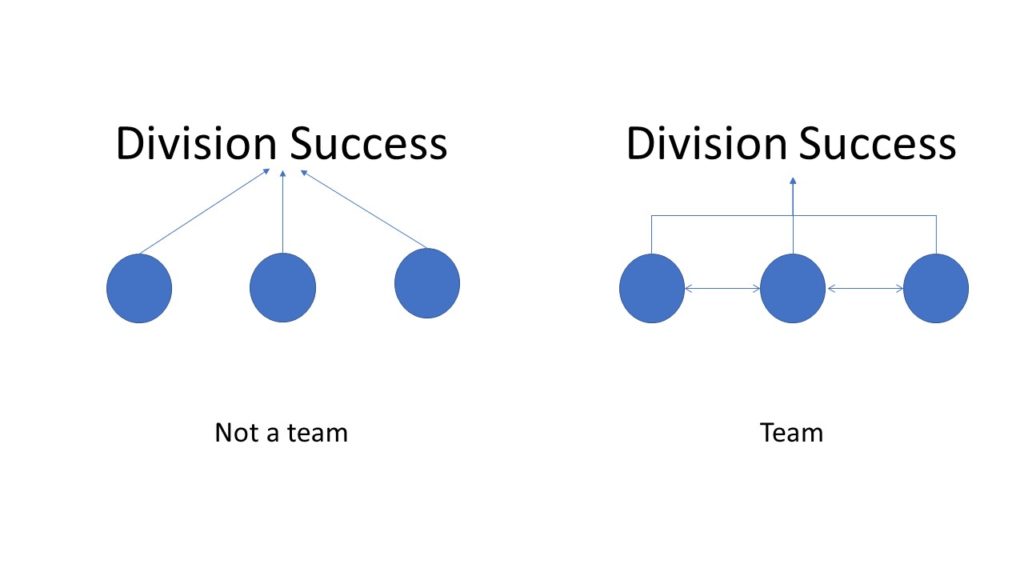Few things frustrate me more than when a group of people working together are called a team. It’s frustrating because unless they’re actually a team it sets everyone up to be disappointed. Disappointed because the team doesn’t seem to be ‘working together well’. The team does not hit performance expectations – never mind achieving any of the exceptional outcomes that teams are supposed to offer. This inevitably leads to requests for team building sessions. And regardless of how skilled the facilitator, the events result in no meaningful improvement because they aren’t teams in the first place. One way to know this is happening to your team is when the individual team members are performing better than the overall team.
Last week, I proposed a reality check with your team. This involved doing an assessment of the overall team as compared to the cumulative average performance ratings of the individuals on the team.
At the end of the article, I gave you the following hypothetical ratings:
- Overall team: 3.5
- Cumulative individual members: 4.2
Now, based on my intro to this post, you already know this ‘team’ is not performing as a true team. It appears that some number of the team members are star performers that have pushed the cumulative individual scores higher. However, their individual success has not pushed the overall performance of the whole team upward.
Keep in mind that these ratings are only an indicator. They don’t tell you why the stars have not pushed up the performance of the overall team up. But it does seem illogical that the team performance isn’t as high as the cumulative and is worthy of some more exploration.
So let’s do a little more diagnosis.
#1: Is it a team or a group of people who work together?
To be a team, they have to have interdependent goals. That is, the performance of one person has to have an impact on the performance of another member.
Now when I ask this question to leaders requesting team building, I often have the leader tell me that of course the team members’ performance has an impact on each other.
But, when they say this I think they’re really thinking about this in terms of the overarching division (or branch or office), not a true interdependence. Consider the diagrams below:
Imagine person #1 performs well. That performance reflects positively on the division. Person #2 also performs well. And this again reflects positively on the division. Person #3 does not perform well. This reflects poorly for the division, but it doesn’t have an impact on the performance of Person #1 or #2. Those two still have good performance outcomes.
THIS ISN’T A TEAM!
In a team setting, Person #1 and Person #2 cannot be successful unless Person #3 is also successful.
#2: Should the group of people who work together be a team?
This is a harder question. Sometimes a team doesn’t make sense. There are instances when individuals are put into situations where individual performance impacts each other. However, they don’t have any real way to influence the performance of the others.
For example, a ‘team’ lead has a performance element for whether her ‘team’ performs well. But, she doesn’t have any authority to hold the team accountable. So ‘team’ is in her title. And the group of people she ‘leads’ is called a team. But she has no official way to influence their performance. Meanwhile, none of her ‘team’ members are held responsible for the ‘team’ lead’s performance.
As a result, if the ‘team’ under-performs, the lead is responsible. If the lead under-performs, the ‘team’ is not held responsible.
Not only is this not a team, it’s a demotivating setup for the team lead.
The key then is to decide whether the individuals could benefit each other if they did work together collaboratively.
#3: Can a team perform lower than its cumulative team members’ performance?
Yes. But it means something is preventing them from benefiting from working together. Here’s somethings I’d recommend considering if you’re sure they’re a true team and they aren’t performing.
- Is there a process or procedure in place that’s preventing them from performing?
- Do they know how to leverage each other’s skills?
- Are there reward systems in place (that you may not realize) that reward individual performance over team performance?
In your experience, what are some other things that might prevent a team from performing at least as well as it’s individuals?






